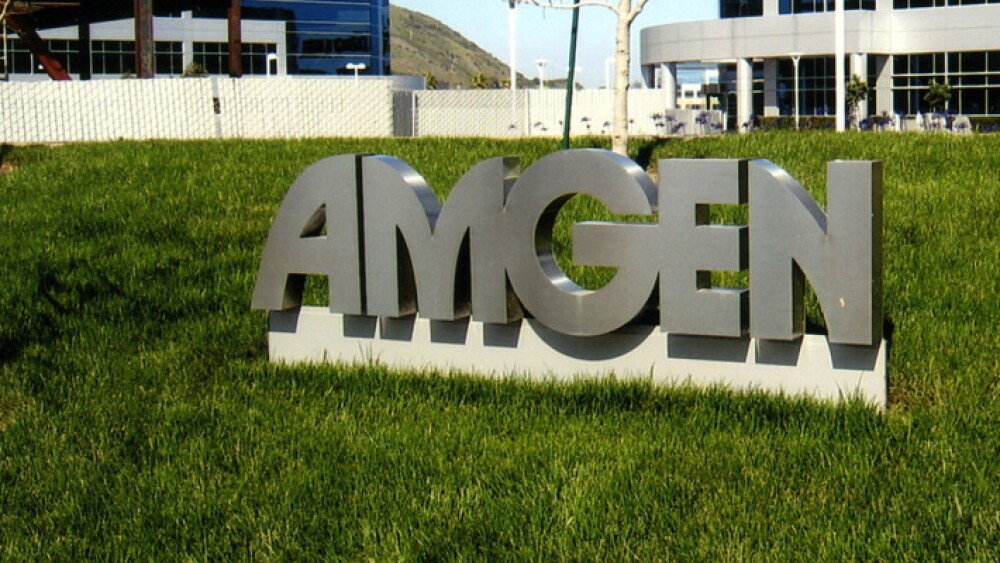July 12, 2017
By Alex Keown, BioSpace.com Breaking News Staff
SAN FRANCISCO – The coveted Golden Ticket for Amgen ’s (AMGN) QB3@953 business incubator has been awarded. This year, two Bay Area companies, Darmivan and Enable Biosciences, have each won a full year at the incubator that will enable the companies to advance their programs.
The Amgen Golden Ticket was developed in 2015 to assist early-stage life sciences companies in their efforts to advance biology and technologies for the benefit of patients suffering from serious illnesses.
David Reese, Amgen’s senior vice president for translational sciences, said the two golden ticket companies have produced “substantive advances in diagnostic technology that have the potential to speed the drug discovery process and help to deliver important new therapeutics to patients.”
The shared laboratory space at QB3@953 was created to help high-potential life science and biotech startups overcome a key obstacle for many early stage organizations – access to laboratory infrastructure. With the award, both companies receive one year of lab space at the incubator, as well as additional facility benefits and connections to Amgen’s scientific and business leaders.
Doug Crawford, general manager at the QB3@953 incubator, said Amgen’s “scientific and strategic mentorship” has proven to be of great value and has helped make the startups associated with the incubator “wildly successful.”
Darmiyan is developing a novel brain imaging platform for early detection, visualization and quantification of neurodegenerative disorders such as Alzheimer’s disease. The company’s technology was described as quantitative virtual microscopy. Darmiyan’s technology is being developed through a combination of cellular level tissue structure computational models, historical MRI data and tissue microscopy, according to company data. It is intended to be used by the medical community to aid in early detection and by research organizations to assist in the development of new medicines for neurological diseases.
Padideh Kamali-Zare, chief executive officer at Darmiyan, said the company is committed to creating a “fast, non-invasive, inexpensive, precise and globally accessible tool” for brain health screening and monitoring.
“By providing high-end experimental facilities and invaluable resources and connections, the Amgen Golden Ticket Award will help accelerate Darmiyan’s product development to address the large, unmet global need in brain diagnostics and therapeutics,” Kamali-Zare said in a statement.
Enable Biosciences, the other Golden Ticket winner, is developing an “ultrasensitive and ultraspecific” antibody detection technology for both research and clinical diagnostic use. The technology is being developed to deliver earlier and more accurate disease diagnosis. Enable’s Antibody Detection by Agglutination PCR (ADAP) is “1,000 to 10,000 times more sensitive than standard detection techniques,” according to company information. That sensitivity enables the use of ultralow sample volumes and easily harvested body fluids like saliva, rather than requiring invasive blood draws. The ADAP platform aims to dramatically improve diagnosis and prognosis of type 1 diabetes, HIV and other infectious and autoimmune diseases, as well as cancer, through early detection that enables timely treatment for best health outcomes.
Enable CEO David Seftel said receiving the Golden Ticket will allow Enable to accelerate its efforts to “diagnose crippling diseases at their earliest and most successfully treatable stage, and to create empowered antibody tests to advance and accelerate drug discovery towards delivering on the promise of precision medicine for all.”
Last year, Amgen awarded Golden Tickets to Mission Bio and SiteOne Therapeutics. Mission Bio is developing research tools that allow high-throughput, single-cell nucleic acid characterization across a variety of research applications, including oncology and immunology. SiteOne Therapeutics’ therapeutic candidates are highly-selective sodium ion channel 1.7 (Na?1.7) inhibitors patterned on naturally occurring small molecules.





